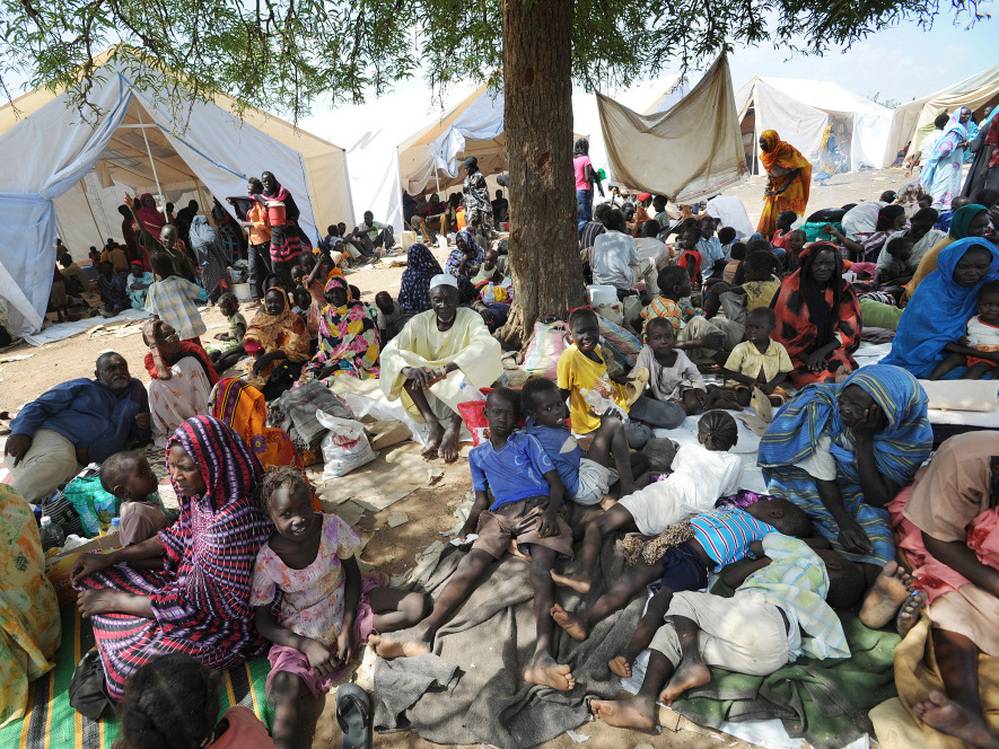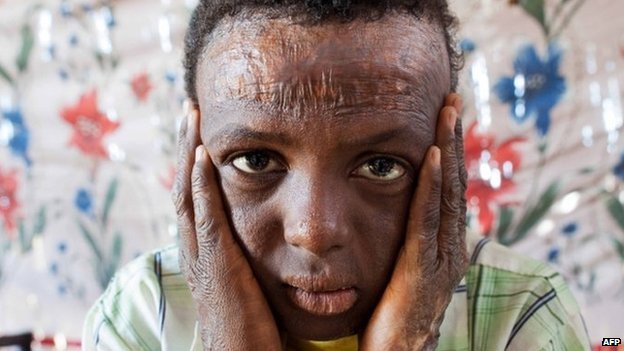New Republic: Blind To The Dawn Of 'New Darfur'

New Republic: Blind To The Dawn Of 'New Darfur' : NPR

The ethnically targeted human destruction in South Kordofan in Sudan, directed overwhelmingly at the African peoples of the Nuba Mountains, continues to spread and intensify. Many are warning of a "new Darfur," a reprise of the destruction of the African tribal groups in western Sudan by Khartoum's forces from 2003 to the present. The number of people displaced is likely in the hundreds of thousands and growing, and the U.N. reports that the "security situation continues to deteriorate." Nearly all World Food Program workers have been evacuated. Many Nuba are now living in caves, without adequate food, water, or medical care.
But what we are seeing might not be most accurately described as another Darfur. Rather, the stage is being set for a reprise of the genocide of the 1990s in the Nuba Mountains, when hundreds of thousands died. Brutally assaulted on the ground and from the air, suffering under a relief aid embargo, forced into "peace camps" where many died, the Nuba faced a campaign of extinction. Today, the fear that this horror might be happening again is palpable. A correspondent for Time magazine in Juba recently interviewed an aid worker who said, "You can see it in all their eyes. They are scared. They see this as a fight for survival." Hunted "like animals" by helicopter gunships, bombed by military aircraft, and haunted by their terrible history, the Nuba are right to be fearful. As one aid worker has predicted, "if the ground offensive commences, 'absolute carnage'... could ensue."
Which demands that we ask the two-fold question: What should the international community, namely the U.S., be doing to stop the violence and is it doing it? Unfortunately, the answer to the second half of the question continues to be "no." "This is going to spread like wildfire," an American official told The New York Times earlier this week, adding that, without mediation, "you're going to have massive destruction and death in central Sudan, and no one seems able to do anything about it."
THE CIVIL ADMINISTRATION in the part of the Nuba Mountains most heavily attacked has collated figures from all of South Kordofan's 19 states and said that approximately 425,000 people have been displaced by the conflict. (This number has yet to be confirmed.) Meanwhile, relief access to the region continues to wither, and Khartoum refuses to grant airspace to U.N. relief agencies. The regime has even gone so far as threaten to shoot down U.N. aircraft refusing to abide by the flight ban.
Beyond this obstruction, Khartoum is displaying an attitude of mounting hostility toward the U.N. peacekeeping mission in South Kordofan. The kinds of threats being made are revealed in a grim incident cited in a recent internal U.N. report:
Sudan's forces detained four United Nations peacekeepers and subjected them to "a mock firing squad," the organization said Monday [June 20, 2011], calling the intimidation part of a strategy to make it nearly impossible for aid agencies and monitors to work in the region.
It seems, again, to be a repeat of the 1990s, when Khartoum shut off humanitarian aid to the Nuba region. Indeed, despite the regime's massive military buildup in the regional capital of Kadugli including hundreds of heavy military vehicles it doesn't appear to have the stomach for confronting the Nuba Sudan People's Liberation Army (SPLA) in the rocky terrain. It's much easier and devastating to the Nuba people to cut off aid.
New Republic: Blind To The Dawn Of 'New Darfur' : NPR


